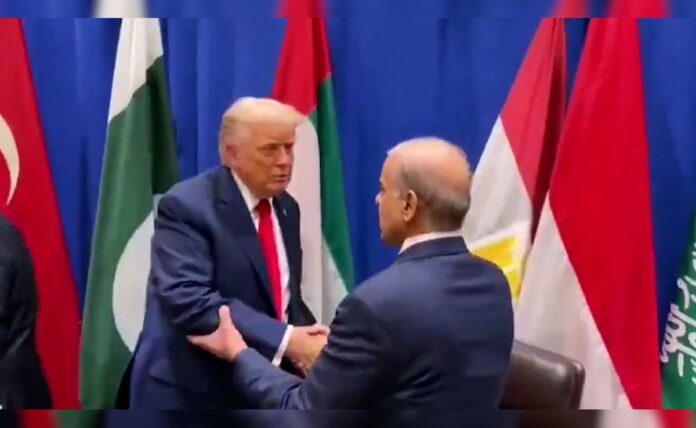In a move that underscores the continuing significance of U.S.-Pakistan ties, former U.S. President Donald Trump held discussions with Pakistan’s Prime Minister Shehbaz Sharif and the country’s powerful Army Chief, General Asim Munir, ahead of his scheduled address at the United Nations General Assembly (UNGA). The meeting, coming at a crucial time for regional and global politics, highlights how security, trade, and diplomacy remain central themes in the relationship between Washington and Islamabad.
Diplomatic Context
The talks took place on the sidelines of the UNGA, a global platform where leaders gather to deliberate on pressing issues ranging from climate change to security crises. For Pakistan, engaging with Trump—who continues to influence American politics and global discourse—offered an opportunity to recalibrate its ties with Washington, especially amid shifting U.S. priorities in South Asia.
Key Issues on the Agenda
-
Counterterrorism and Security Cooperation
The presence of General Asim Munir at the talks indicated the emphasis on security matters. Pakistan remains a crucial player in counterterrorism efforts and stability in Afghanistan. Discussions likely touched upon intelligence-sharing, border management, and the evolving threat of extremist groups. -
Economic and Trade Relations
Pakistan is grappling with economic stress, including debt burdens and inflationary pressures. By engaging with Trump, Sharif sought assurances of continued U.S. support, possibly in terms of trade concessions, investment encouragement, or backing at international financial institutions. -
Regional Stability
With tensions between India and Pakistan never far from the surface, the talks may have addressed broader regional dynamics. Trump has previously offered to mediate between the two nuclear-armed neighbors, and his engagement signals continued interest in South Asian geopolitics. -
U.S.-China Rivalry
As Pakistan maintains a deep partnership with China through the China-Pakistan Economic Corridor (CPEC), balancing relations with Washington remains a challenge. Trump’s conversation with Pakistan’s leadership may have touched upon how Islamabad can manage this delicate balance without jeopardizing ties with either power.
Symbolic Significance
The timing of the talks is as important as the content. With Trump preparing for a high-profile UNGA address, his engagement with Pakistan’s civilian and military leadership sends a signal that South Asia retains importance in U.S. foreign policy considerations. It also reinforces Pakistan’s role as a pivotal state in matters of security, trade, and regional diplomacy.
What It Means for Pakistan
For Prime Minister Shehbaz Sharif, the talks offered a platform to showcase Pakistan’s diplomatic outreach and reassure domestic audiences that the country is not isolated on the world stage. For General Asim Munir, the meeting reinforced the military’s central role in shaping Pakistan’s foreign policy and security agenda.
Implications for India and the Region
India will closely monitor these developments, given that any recalibration in U.S.-Pakistan relations could influence security dynamics in South Asia. While Washington has deepened its ties with New Delhi in recent years, engagement with Islamabad suggests the U.S. still values Pakistan’s role in regional stability, particularly concerning Afghanistan.
Conclusion
Trump’s talks with Shehbaz Sharif and Asim Munir ahead of the UNGA highlight the enduring complexities of U.S.-Pakistan relations. While economic support, counterterrorism, and regional stability dominate the agenda, the symbolic weight of such a meeting underscores Pakistan’s strategic importance. As Trump takes the UNGA stage, observers will watch closely to see whether his address reflects the themes discussed with Pakistan’s leadership—and what that might mean for South Asia’s future.



